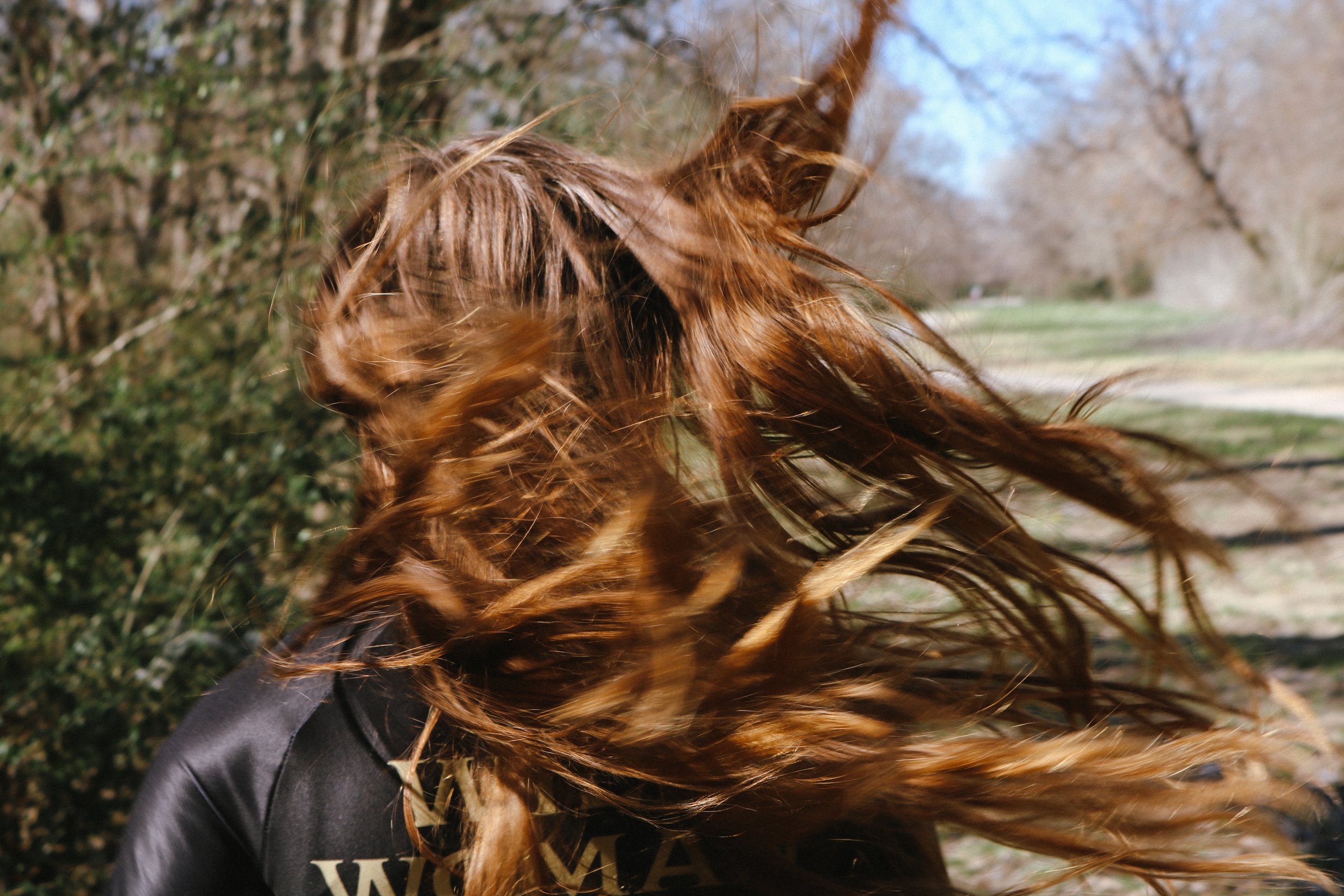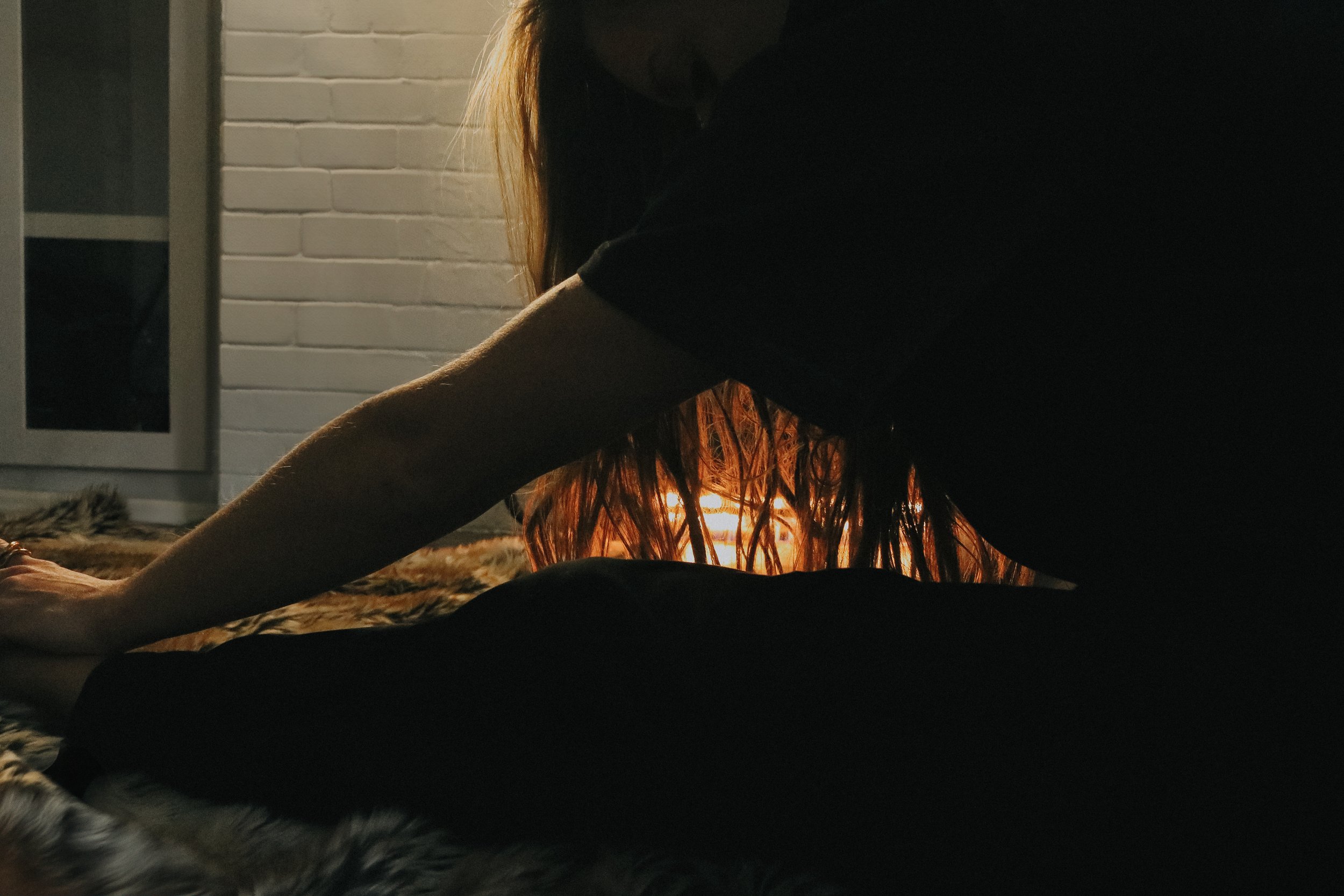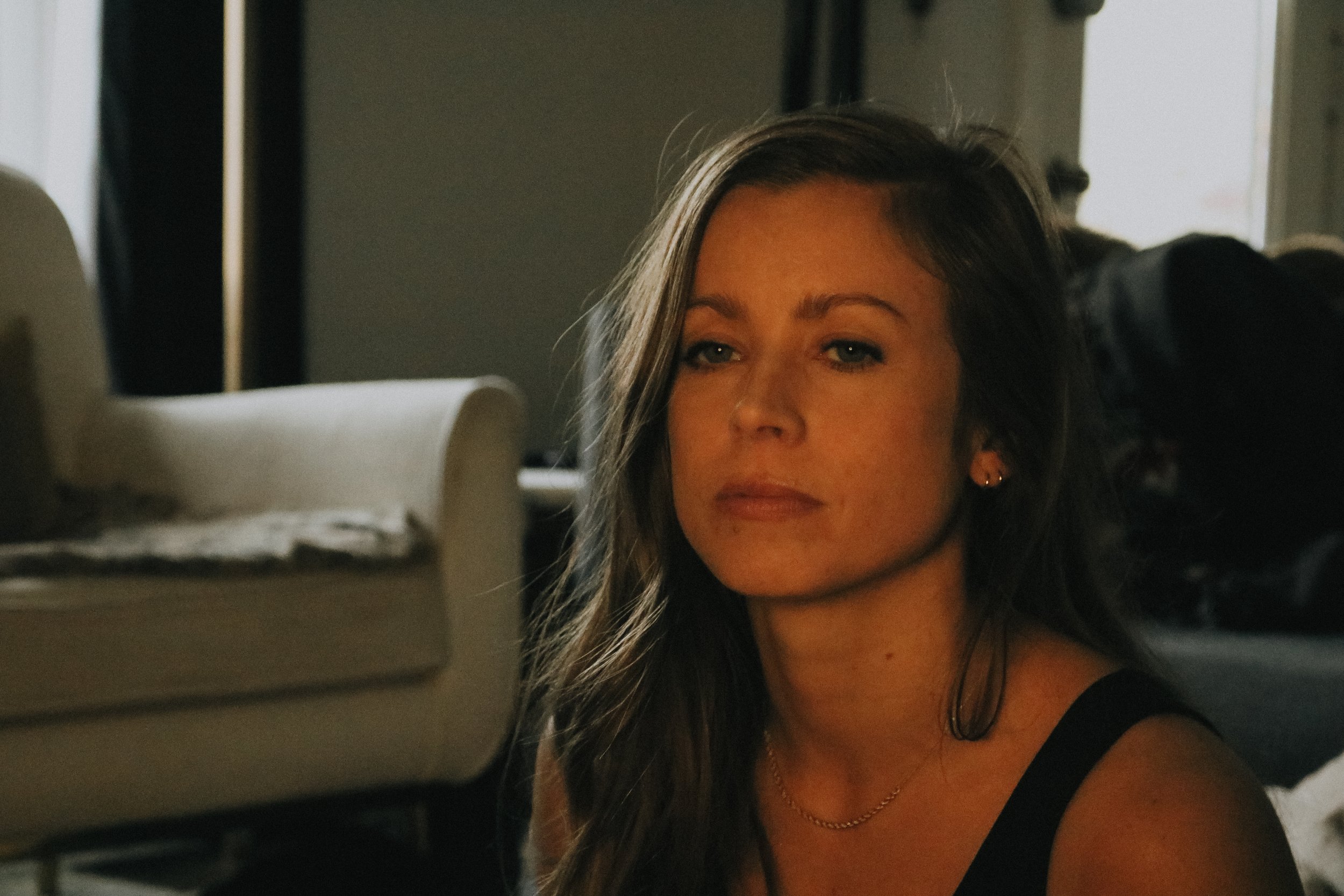
“The wild nature has a vast integrity to it.”
-Clarissa Pinkola Estes, Women Who Run With Wolves
A Q&A with Dallas runner Leah Katherine Frazier
Photography and Creative Direction by Aaron Garcia
Q:You’ve gone through many stages of a running practice, where are you at now with running as opposed to where you began?
LKF: I’ve been running for 18 years now and it has taken many shapes for me. It has been a way for me to stay in shape for other sports. It’s been a lifestyle, an abusive relationship, a place of refuge.
In my first year of college, I ran a local 5k, I was surprised to be approached by the Baylor cross country coach who asked if I’d join the team. Running then became a lifestyle, all-consuming identity, and an unhealthy obsession. For the next 8 years I was in a never-ending cycle of rest, physical therapy, increased mileage, another injury. If I can’t run, who am I without it?
Then, running became a great source of community for me in Dallas, however, now I find myself leaning more into the solitude of it. I’m able to find my own way and rhythm that’s not always possible when you’re queuing off those around you.
After many years of running injuries, I’ve had to completely shift my mindset around running. While I still have time goals, it’s no longer my focus but a welcomed biproduct.

Q:Many runners talk about “the runner’s high”, I think of it as a meditation. How do you view that moment during a run where you feel elated?
LKF: I view the “runner’s high” and “meditation through running” as two separate things. Both amazing, but different in my experience. My runner’s high usually comes from a race or a hard workout, where running hard feels easy. In a way, you transcend your effort. In the marathon, for example, the first half of it may feel easy while you’re running this tough pace, but you’ve trained and have all this adrenaline from the race and the spectators. To me, I most often find the runners high when I find that fine line of having a hard effort that leaves me feeling energized after versus depleted.
Read more of Leah’s story here:
Q:Can you remember a specific run in your past that stands out in your memory?
LKF: I love running in new places. It’s my favorite way to see a city… early in the morning before the streets get crowded. I recently visited Mexico City and was lucky to get connected to a local running group called DROMO. They showed me the best running spots in the city. Being able to connect with locals in that way was really special.
I then joined the AireLibre group and had a tough trail run up to Monte Tláloc. That run specifically stands out because it was the first time I didn’t run scared on a steep descent. I’ve done a decent amount of trail running and have always been relatively cautious with my footing running downhill. On this run, though, I trusted my body and my feet to know what to do. I turned off my mind and just ran free.

When you welcome pain, it doesn’t have to consume you.
Q:How would you describe your relationship with pain? Can you offer a specific example?
LKF: My relationship with pain is not static and continues to evolve. Young Leah could easily deny pain. I started gymnastics when I was very young and associate many of my first experiences with physical pain with that sport. A 5-year-old girl with blistered and calloused hands from the uneven bars. Doing extra strength and conditioning at home in my own time. Falling off the beam trying a new skill, leaving me beat up and bruised. I would never tell my parents if they didn’t witness it... I was fine. Training at that level, that young influences your relationship with pain. I was trained that pain was expected if you wanted to reach whatever goal you had.
As I got older and moved into team sports my relationship with pain changed because there were others counting on you. I played several volleyball matches with a staph infection on my forearm, the ball repetitively bouncing off of it, on the verge of tears the whole time. I broke my arm falling on the tennis court and popped up and got in line to keep playing. You learn to compartmentalize the pain when you view the thing in front of you as more important than this temporary discomfort you know will subside.
Q:There are books I’ve read that make me aspire to be a certain type of person. What kind of person does the book “Women Who Run With the Wolves” make you want to be?
LKF: The essence of the book is to return to your truest nature. From that perspective, it makes me want to be unapologetically myself. Instead of seeking to be what is socially acceptable, especially as women, it encourages readers to go inward and reunite with our own “wild woman”, our feminine intuition, and the knowledge of our cycles.
It has made me reconnect with my femininity that I’m realizing had deteriorated over time by trying to emulate those masculine qualities that our society holds in high regard, especially in the workforce. The feminine has been equated to less than and has taught girls that to succeed in a patriarchal society you must belittle those feminine qualities.
Once you’ve reconnected and become attuned to her, your truest/wildest self, you can start trusting yourself and your intuition again. The book has made me look inward, ask myself tough questions about what I want out of life, and reconnect with those things that ignite my soul. “Wild Woman teaches women when not to act ‘nice’ about protecting their soulful lives.” She gives you permission to passionately seek out what fills you up.
Get more of Leah through the full journal…
WILD WOMAN
GIVES YOU
PERMISSION TO
JUST BE.

Q:You have two beautiful Greyhound dogs, what is your relationship like with them and why Greyhounds?
LKF: I wish the origin story for “why Greyhounds” was more altruistic. When my ex and I moved to Dallas in 2015, we knew we wanted a dog and were researching good apartment dogs because we didn’t have much space. I had never been around greyhounds or knew much about them, but they kept popping up in all our searches. We went to a meet-and-greet for a local greyhound adoption agency and when I met our first boy, Noble, I fell in love immediately. They’re so gentle and loving. Most of them have been bred and trained to race so by the time they get into a home they’re just ready to rest and be loved.
My relationship with them has depended on the dog. My relationship with my boys, Noble and Flynn, have been very special, mainly because they are very needy (as is typical for male greyhounds) and loving toward me. I’d compare my relationship to them as mom and toddler.

My wasteland is me.
Q:When you think about the idea of going “into the wasteland” — searching your innermost doubts and fears in order to understand them — what comes up for you?
LKF: I feel like I’m just returning to and exploring my “wasteland” after a long time of neglect. For me, it started with asking myself some hard questions that I didn’t want the answers to.
I realized that because I hadn’t faced it for so long I was scared to go in at all. It had been buried and tucked away all neatly disguised as control. But I didn’t understand that my wasteland is me, so by ignoring it I was ignoring myself, which caused disconnect in many areas of my life. Finding it and searching those doubts and fears again has been liberating in many ways.













